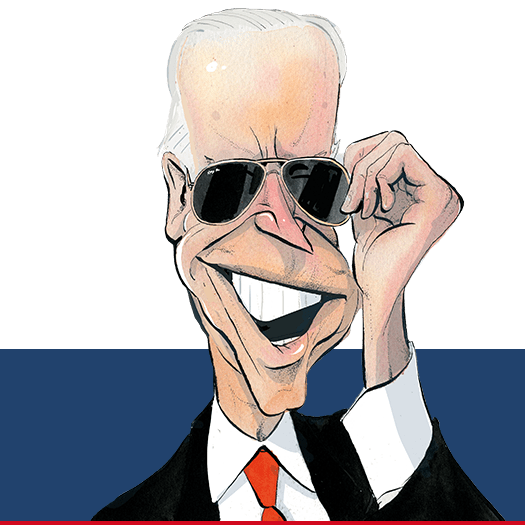President Biden’s emphatic assertion that ‘America is back’ at the Munich Security Conference last month was met with a lukewarm reaction from European leaders. ‘Europe has moved’, William Galston explained in a Wall Street Journal column pointing to a recent survey by the European Council on Foreign Relations that revealed a persistent distrust of the United States among Europeans and a resistance to taking the US side in America’s competition with China.
Yet there is another side to the story. America is not really back. True, president Biden was quick to rejoin the Paris Climate Accord and to extend warm and fuzzy feelings toward our traditional allies. But the sentiment that Donald Trump successfully tapped into – namely, the notion that the United States’ global role comes at the expense of interests of ordinary people at home – will continue to shape Biden’s policies as much as Trump’s, even if the style, the rhetoric and the level of thoughtfulness will vary.
In many ways, even Trump’s presidency was more of an accelerant of existing trends than a substantive break with the past. ‘America’s withdrawal from the multilateral order and foray into preferential agreements began with KORUS [US-Korea FTA] under president Bush and came to its peak with the Trans-Pacific Partnership under Obama,’ writes Hosuk Lee-Makiyama, a director at the European Centre for Political Economy in Brussels. Long before Trump’s war on the World Trade Organisation’s Appellate Body, successive administrations have harboured a distrust of the institution, exemplified by Obama’s veto of the reappointment of Chang Seung-Wha to the panel in 2016.
The sentiment that Donald Trump successfully tapped into will continue to shape Biden’s policies
If anything, the protectionist streak in US trade and foreign policy is growing. For example, the new administration has decided to continue the Trump era’s blocking of the appointments to the Appellate Body. A few days into his administration, president Biden signed an executive order tightening Buy American provisions, increasing the price differential at which agencies can decide to buy from non-US sources. He also reiterated his support for the Jones Act, which requires goods shipped between US ports to be transported on US-built and operated ships.
At the end of February, the president signed an executive order to review existing supply chains for advanced batteries, pharmaceuticals, critical minerals and semiconductors. He did this not only to address underlying security issues but also help solve the chip shortage affecting the automobile industry – and ‘create well-paying jobs’.
Biden has good reasons to follow this path. On a recent Pew poll, 75 per cent of Americans (85 per cent of Republicans and 67 per cent of Democrats) listed protecting the jobs of American workers as a foreign policy priority, followed by measures to protect the United States from terrorist attacks and reducing the spread of infectious diseases (71 per cent respectively). The sentiment is not new – American jobs have been near the top of the list of priorities for the American public since the 1990s.
The problem is that ‘protecting jobs’ – unlike, say, national security-related concerns about the integrity of vital supply chains or levelling the playing field with explicitly protectionist nations – makes for an odd foreign or trade policy priority. For one, the impact of international trade on labour markets in a gargantuan domestic economy like the United States has been modest. Even the largest estimates of the size of the ‘China shock’ (2-2.4 million jobs destroyed between 1999-2004) are small relative to the number of jobs created and destroyed in the US economy more recently (5.5 million in December 2020).
While an integrated global economy does have its losers, a range of domestic policy tools such as compensation and retraining can help. The ineffectiveness of Trump’s trade wars in generating employment is a reminder of the bluntness of protectionist tools. More importantly, a trade policy built to protect domestic jobs is likely to look radically different from one that takes seriously America’s role as the main organiser and guarantor of the international trading system.
Europeans, with their own penchant for protectionism, especially in the digital and agricultural sectors, would do well to brace for transatlantic clashes on trade. With a protectionist America more interested in sharp-elbowed bargains to protect job than in the niceties of WTO’s rules-based system, the idea of a ‘Global Britain’ may face headwinds too — and the British would do well to plan accordingly.
Either way, the most important question facing the administration is whether and how its emerging protectionist posture can be reconciled with repairing the other facets of the transatlantic partnership and restoring America’s leadership role in the world.
Dalibor Rohac is a resident scholar at the American Enterprise Institute in Washington DC






Comments